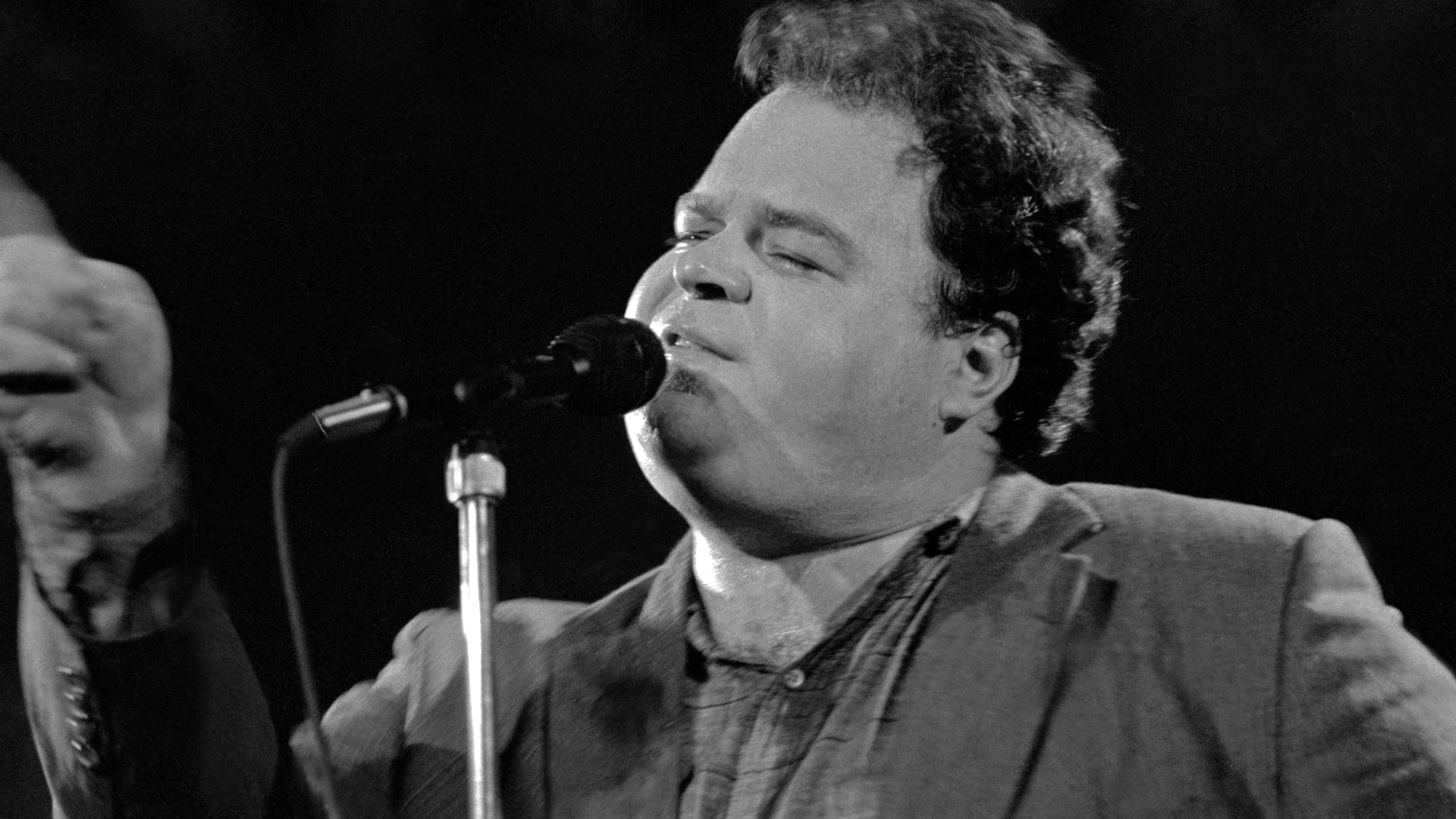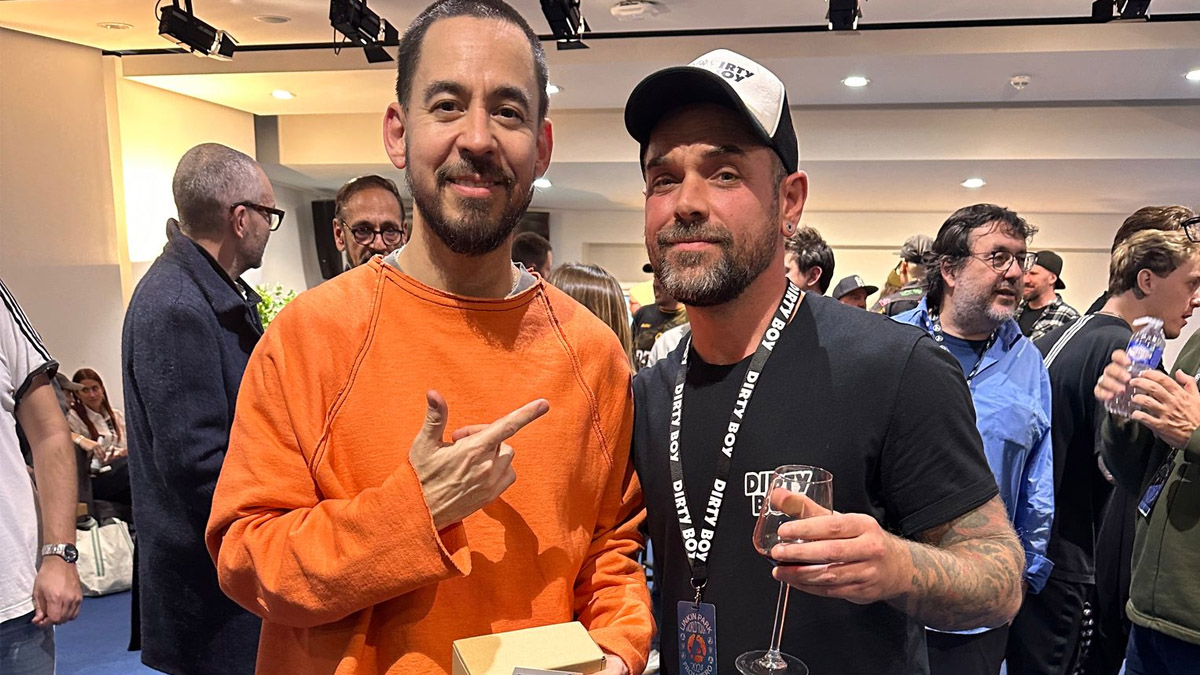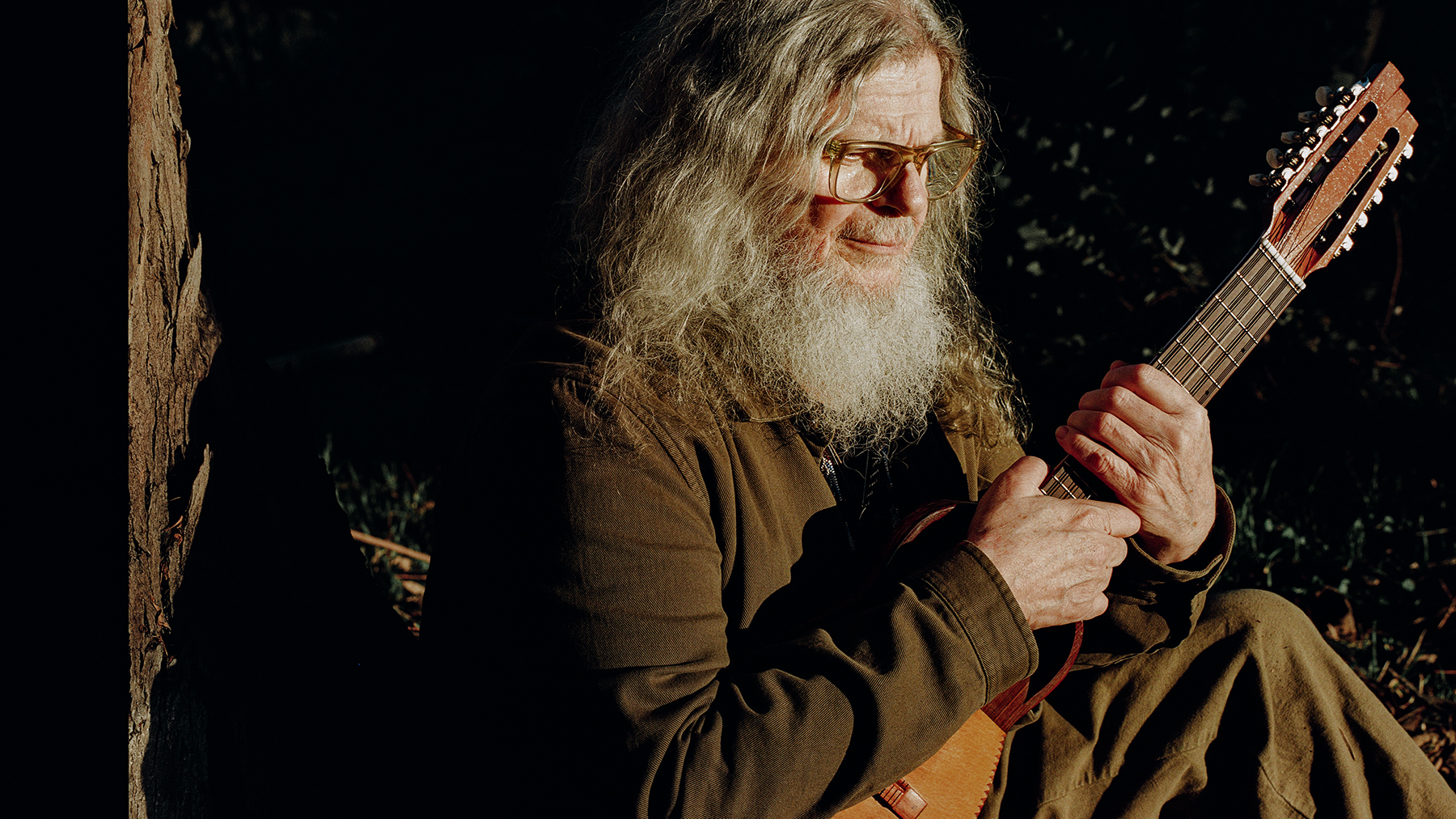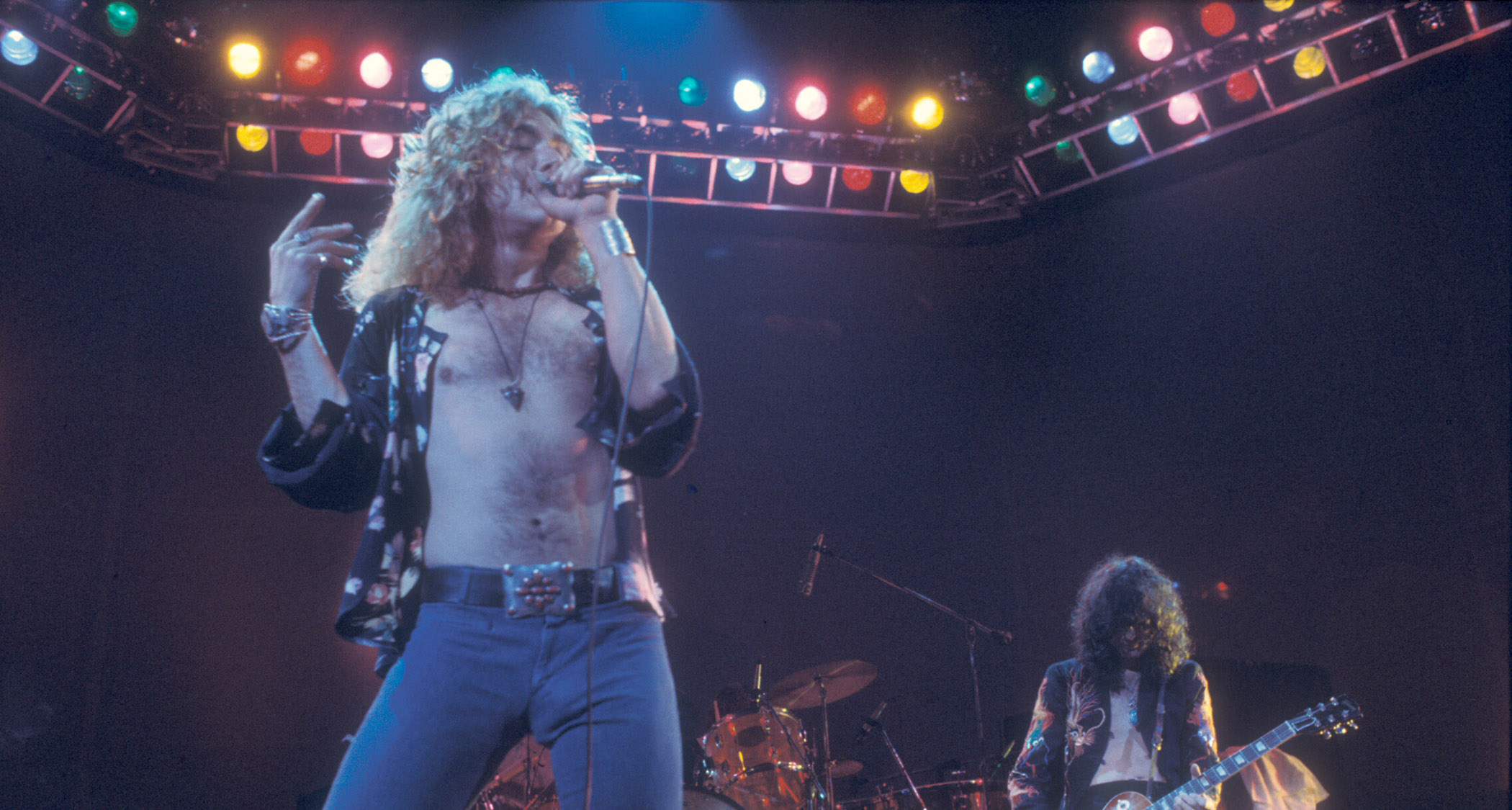
Up Close album preview: introduction
On Eric Johnson's eagerly awaited upcoming album, Up Close (his first studio effort since 2005's Bloom), the guitar legend expands and deepens his signature style and sound. Yet, at the same time, the noted perfectionist tells MusicRadar, "I really didn't get all that caught up in the nitpicky aspects of recording that I used to. I let things happen and was very open to spontaneity, way more than ever before.
"I think that's why I decided to call the record Up Close. I feel like I took some barriers down between myself and the music-making process. And hopefully, the audience will feel a more direct connection to what I'm doing, as well. That was the idea, anyway."
Johnson recorded Up Close over a period of several years, working with co-producer and engineer Richard Mullen. Veteran producer Andy Johns mixed the album and, according to Johnson, "He did a tremendous job. Andy can really hear what a record should sound like - the total picture."
Although Johnson worked with a core of musicians he's utilized in the past - C Roscoe Beck on bass, along with drummers Tommy Taylor and Barry “Frosty” Smith - various guest stars make notable appearances, among them Jonny Lang, Steve Miller and Jimmie Vaughan.
“When the others artists came in, that's when things started to feel very free," says Johnson. "I wanted to create an environment where we could just see what would happen. I’m really glad I did. The record sounds very in the moment."
That is is. Having heard an advance preview of Up Close, MusicRadar can confidently rank this stunning work right up there alongside Johnson's multi-platinum, Grammy Award-winning Ah Via Musicom. Guitar fans - prepare to be dazzled.
Up Close will be released on 7 December. On the following pages, MusicRadar presents our initial impressions of each song, along with an exclusive walkthrough of the selections by Eric Johnson.

Awaken
Talk about a transfixing opener. Delicately plucked guitar notes rise up like little serpent heads. They move to and fro…there’s a hint of echo and feedback, amidst an undercurrent of barely heard background noise and conversation. A subtle Indian influence informs this mesmerizing transporter.
Eric Johnson says:
“There’s three little segue pieces on the record. I didn’t plan on having them - things just sort of worked out that way. But I like a bit of a musical interlude between songs, so when I was fooling around with what I thought was going to be one larger atmospheric piece, the idea came over me to break it up.
“Awaken works really well as an intro for the album. It’s got a bit of an Indian feeling; in fact, there’s some Indian stringed instruments on it. I didn’t want to use synthesizers or anything like that; I wanted to see if I could get the whole vibe with just my guitar and the Indian instruments. I think it’s got a really cool, mysterious quality to it.”

Fatdaddy
A riff that’s both elegant and grinding, you say? Yep. Johnson lays it down on this stomping rocker that features his signature guitar sound, equal parts clean and distorted, with a vibrato attack that approximates a violin. The solo takes off in unexpected directions, zigging and zagging, playing off the drums, which in turn, do the same. It’s one of the best ZZ Top tunes that ZZ Top haven’t written.
Eric Johnson says:
“This song was kicking around for a few years, and I could never figure out what to do with it. Sometimes it takes a while for a number to find a home. And the funny thing is, this was the last track that I cut for the album, the one that I had in my back pocket for so long.
“I didn’t plan on recording it for the record, but right as I was finishing, I thought I was lacking an uptempo instrumental song, something that kind of rocks in a no-nonsense way. So I cut Fatdaddy at the last moment. To me, the riff is a little Jan Hammerish, and I definitely had that in mind for years. The solo, though, is completely improvised, which is why it sounds pretty fresh, I think.”
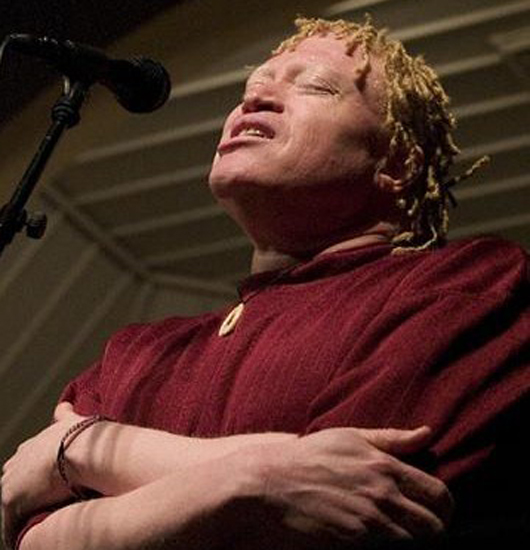
Brilliant Room
On this brisk pop-rocker, Austin soul and blues veteran Malford Millgan turns in a vocal performance that positively sparkles. The song is sunny, the lyrics mature and reflective. But wait until Johnson ushers in ominous storm clouds of growling chords and a solo that’s pure hellfire.
Eric Johnson says:
“Bill Maddox helped me write some of the lyrics. It’s about the space inside all of us that’s so bright and intuitive and just waiting to explode, if we allow it to happen.
“Originally, I sang it, but I just thought, Man, it’s good and all, but my voice sounds a little too smooth, too clean. Actually, this was a real turning point in the album when I started bringing some other people in. I wanted some other textures and moods, and I think it’s great to hear different sounds than just me doing everything myself all the time.
“The song’s a little pop and kind of polished, so Malford’s voice, which has more of a soulful edge than mine, really suits the tune. The guy‘s amazing.”

Texas
How apropos that Johnson would cover Electric Flag’s paean to the Lone Star State. The guitarist mixes it up on this mid-tempo blues semi-classic with fellow Austin legend Jimmie Vaughan. You won’t have any trouble figuring out who’s who - Johnson goes a little bonkers, while Vaughan keeps it trad. The two styles blend like chocolate and peanut butter. And check out The Joker himself, Steve Miller, tearing up the vocals with just the right amount of gusto.
Eric Johnson says:
“I was always a big Electric Flag fan as a kid. Man, I loved that record, A Long Time Comin’ - totally wore it out. I’ve never really mentioned him in interviews, but Mike Bloomfield was a big influence on me as a guitarist. What a great player.
“We cut the track live in the studio, pretty off-the-cuff. Jimmie Vaughan and Steve Miller overdubbed their parts. Steve came in the studio and said he wouldn’t mind singing, and I said, ‘Well, I want you to sing Texas,’ and he said, ‘Great. I always loved that song.’
“Jimmie’s playing is tremendous, as always. I know his style so well, and I‘m such a fan of his work. I didn’t have to give him any kind of direction - he knows what a song like this needs. The entire track was a lot of fun to put together.”

Gem
With the first shimmering notes, Johnson carries us off into an ameliorating ride into the subconscious. Bound to join the ranks of his other instrumental masterpieces, Gem is built around a simple but striking melody. Several solo sections allow the guitarist to perform passages that are lyrical and concise. Each note has a rubber band-like quality - one can actually feel the tension in Johnson’s vibrato. If that’s what he means by getting ’Up Close,’ he’s succeeded.
Eric Johnson says:
“I wrote Gem as a gift for a friend of mine. I’ve been playing it live for a few years, and it was feeling good, like it could work for the album. When we cut it in the studio, I got a little carried away adding some different textures to it. But nothing extreme, nothing that would take away from the basic structure.
“The intro came out real nice. I plugged straight into the console, although I did use a bunch of effects. Actually, there’s about 10 different guitars on there, all doing counterpoints to the melody. That’s why it sounds so otherworldly.”

Traverse
Have we been shot into the outer limits of the solar system? Heavily affected cymbal splashes and squalls of feedback whiz by like space junk missing your head by inches. Disorienting and daring, this 1:18 sonic adventure.
Eric Johnson says:
“Like the beginning part, which is Awaken, this is complete improvisation. I just laid down the track and put more and more layers on it. Every bit of it was made up on the spot. I did it for fun and was right in the moment. We slowed down the drums and played around with sounds some.
“I think I used my ‘62 Strat through a 50-watt Marshall. There's an E-Bow, too. I have one in my closet, and every couple of years I figure out a reason to pull it out. The section that is Traverse seemed to call for the E-Bow. It’s a lot of fun to use, but you don’t want to overdo it. It’s a nice little flavor.“

Austin
A blues-rocker about Johnson’s native town that wastes little time getting down to business. Johnson fills the gaps in the verses with clean, glassy, jazzy chords. The solo is a free-wheelin’ jaw-dropper, one in which notes summersault over one another. Jonny Lang’s vocals are dreamy one second, rough and bursting with barely contained emotion the next.
Eric Johnson says:
“The lyrics are about how much Austin has changed over the years. I’m a born-and-bred Texan, and I remember Austin as a kid, how it had such great nature and lakes and the Barton Creek Greenbelt. There’s been such a massive change in the landscape - that’s the price we pay for progress, which isn’t always a good thing.
"Again, I sang it originally, but I wanted more of a Stevie Wonder vibe on it, and I wasn’t convinced that my vocal did the job. Jonny happened to be in town playing a show, so he had off the next day and came in and overdubbed the vocal. I liked his singing better than mine, so that’s what I went with. I do like to sing, but I’m not precious at all about having to do the vocals. Whatever works, you know?”

Soul Surprise
The pace is languid but it sucks you right in. Johnson establishes a strong, economical melody, and one can detect faint vocals underpinning each note - it’s almost like scat singing, and it’s a great effect. Graceful piano lines adorn the verses like latticework. But are you ready for another corker of a Johnson solo? How he manages to mix high-level instrumental prowess with pulse-racing emotional depth is what separates him from so many in his field.
Eric Johnson says:
“This is a very interesting one. At first it was a vocal tune, and it went through two different attempts where I was singing. For some reason, I wasn’t happy with what I was doing.
“I tried to get Paul Rodgers to sing on it, and for a while it looked like he could do it. But I could never come up with a vocal melody and lyrics that worked - the song just seemed to want to be an instrumental. So, unfortunately, the track that was earmarked for Paul wound up as an instrumental. I’m still hoping to do something with him someday, though, because he‘s one of my favorite all-time singers.
“But there is a bit of a vocal: If you listen to the guitar melody, you can hear me kind of going, ‘doo-doo-doo’ underneath. That was me when I was changing the vocal - I was trying to come up with a different idea. In the end, I left my little vocal part in. It sounds kind of quirky, but in a good way.”
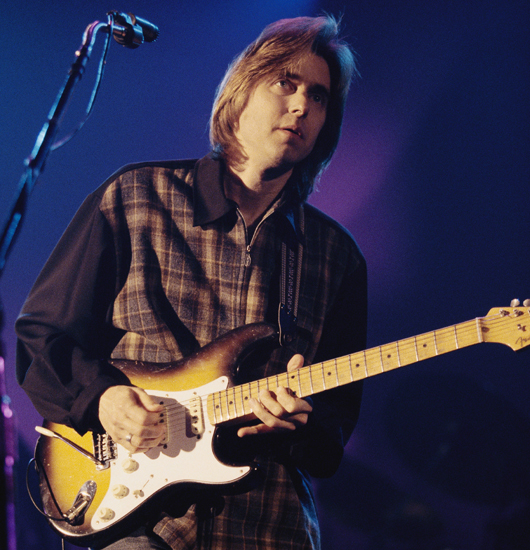
On The Way
A rollicking hootenanny of a good time from the first snare hit - and Johnson’s right there with a tip of the hat to both Chet Atkins and Buck Owens’ Buckaroos. We’re talkin’ smart-alecky chicken-pickin’ and rockabilly with a dash of jazzy chords for good measure. Fun stuff.
Eric Johnson says:
“I’ve been working on this one for a while, playing it live, so I decided to bring it in and see if it would work out. I’m playing a Strat on it, on the fast picking stuff. I’ve tried playing parts like that on a Tele, but they always sound better to me on a Strat.”
“My friend Steve Hennig came in and played some guitar on it, as well. He played on Steve’s Boogie on Ah Via Musicom.
“Actually, there’s a version of this song on the live Anaheim DVD. I worked on it a while, but not a crazy amount of time. I did a number of passes and comped them all together. I used a couple of Twin Reverbs, and they gave me a really cool sound.”

Arithmetic
Finally, Johnson takes the mic for a lead vocal! His voice is angelic, pure and impassioned on this touching rock ballad, which features ringing chord work and an extended solo that truly lifts the spirit. Johnson alternates between fleet-fingered runs and notes that could go on for days if he let them.
Eric Johnson says:
“I wrote this song for a friend of mine. ’Arithmetic’ is another word for ’chemistry,’ so it’s about relationships - all kinds, whether they’re between two people in love or friends, or even the feeling you can have with your pet. I just wanted to say thanks to a very special friend, for the chemistry, the connection.
“Once I got into the vibe, the lyrics came to me fairly easily. Learning how to get love is also about learning to give love. I kind of tapped into the idea that once we leave this planet, the connections we make are what we leave behind.
“The solo was a one-take deal. Well, I should explain that: I tried it a bunch of different ways, and it wasn’t happening. So I just said, ’The heck with it,’ and I went somewhere else with it. It followed the spirit of the album - just let go and get in and do it.”

The Sea And The Mountain
The third and longest piece of the audio collage, The Sea And The Mountain also has the most actual guitar playing. With the sound of humming amps and eerie affects enveloping him, Johnson works his fingers around the fretboard, creating a hypnotic melody. His use of feedback as its own instrument is fast becoming on par with that of Hendrix.
Eric Johnson says:
“This is the finale of the soundscape. It’s obviously a continuation of the other sections, but I tacked on these massive chords of feedback.
“Again, it wasn’t played with the idea of splitting it up into three sections, but I did go for an overwhelming finish, so when I decided to cut the music into three distinct pieces, the idea of a crescendo worked out nicely. Sometimes these things happen by accident, but they turn out the way they do for the right reasons.”

Vortexan
One day scientists will arrive at the formula by which Eric Johnson achieves such a warm, plush sound from his amps. Or maybe not. Maybe it’s just his own magic. Vortexan is bathed in these frequencies. A kick-up-the-dirt blues number with the kind of cheeky riff that would make Jeff Beck go, ‘Now, why didn‘t I think of that?’, it comes complete with a lengthy solo in which Johnson takes it far and wide.
Eric Johnson says:
“I was in Sedona, Arizona once, and a friend of mine started calling me a ‘Vortexan.’ He was talking about how spacey Sedona was, how it’s full of these vortexes and stuff, and he turned to me and said, ’And you’re the Vortexan!’ So I thought, Hey, that‘s pretty cool. Might make a good song title.
“I was kind of fooling around with different blues riffs, and this one came out of it. It’s reminiscent of [Robert Johnson’s] Cat’s Squirrel and a little bit like my song Righteous. Then again, when you do rockin’ blues, I-IV-V, it’s bound to remind you of something else. But I think I put a neat spin on it.”

A Change Has Come To Me
Clean and jazzy chords introduce this vaguely spiritual number about unraveling life’s mysteries. Johnson’s vocals in the verses are direct and poignant - as wild as he takes his guitar playing, he doesn’t go in for au currant melissmas (thank goodness!). A chorus of background singers rise up in the middle. Johnson’s solos (middle and end) are grand, sweeping, soaring, transcendent.
Eric Johnson says:
“This is one that I wrote years ago and never recorded. I dug it out of my book of poems and had to write a few more parts to it. Because I had started it some time back, I had to work on the words and make them more in the moment and applicable to me now. If’s about self-realization and the predicaments we encounter in life when we don’t take responsibility for our actions.
“You know, when we stand in a cave - metaphorically speaking, of course - we shut so much out. But then we start to hear all these echoes, and we go, ‘What are all these echoes? Where did they come from?’ And they come from within. They’re what we put out there to other people and to the world around us. I started to have these epiphanies, and I wrote the song about that kind of…I don’t know…emancipation, if you will. Realizing that we have to be true to ourselves and to our own lives.
“Contrary to the way I usually work, I wrote the music last - usually I wait till the last minute to do the words. But with this one, the words came first.
“The ending is a total complete improvisation. We just let it fly and had a blast.”

Change - revisited
What’s this?…Ahhh, a Beatlesesque fade in and fade out, very Strawberry Fields Forever. But the drumming has a hint of Mitch Mitchell a la Are You Experienced?
Eric Johnson says:
“This is the Strawberry Fields reprise to the previous song. Andy Johns, who mixed the record, wanted to do a fade-out, and I wanted the song to continue to where it kind of fell apart at end, so we did the Beatles thing and faded it out and brought it back in.
“It sounds real cool, running it through the flanger and everything. Another little unplanned thing that does the job.”

Your Book
A piano-driven vocal ballad that is so well conceived and beautifully structured that is sums up the spiritual essence of the entire record. Johnson’s singing is thick with emotion, and given the subject matter that’s understandable. Guitarist Sonny Landreth turns in a fine guest appearance. The playing is restrained but not muted. This is the kind of final kiss that doesn’t need much more to get the message across.
Eric Johnson says:
“I wrote this song for my father when he passed away about six years ago. It’s really about how everybody has a beautiful story to tell, how they have a beautiful book to read - and that book is their life.
“In life, we’re observers: we see the film, but we don’t necessarily get to read the book. That comes later, if we’re lucky. You know how when you go to see a movie and everybody goes, ’That was great, but it wasn’t as good as the book’? That’s how I see this song. The book is always going to be deeper and more colorful and richer if you let yourself take it in.
"I wanted to honor my father with that kind of statement, that his story was one I felt and acknowledged. I played a Baldwin grand piano on it. The vocals took me a while. They were a bit of a struggle. Having Sonny Landreth play on it was great. He had lost his father not too long ago, so he really related to the track.”
Liked this? Then read Eric Johnson: What Jimi Hendrix means to me
Connect with MusicRadar: via Twitter, Facebook and YouTube
Get MusicRadar straight to your inbox: Sign up for the free weekly newsletter
Joe is a freelance journalist who has, over the past few decades, interviewed hundreds of guitarists for Guitar World, Guitar Player, MusicRadar and Classic Rock. He is also a former editor of Guitar World, contributing writer for Guitar Aficionado and VP of A&R for Island Records. He’s an enthusiastic guitarist, but he’s nowhere near the likes of the people he interviews. Surprisingly, his skills are more suited to the drums. If you need a drummer for your Beatles tribute band, look him up.
"At first the tension was unbelievable. Johnny was really cold, Dee Dee was OK but Joey was a sweetheart": The story of the Ramones' recording of Baby I Love You
"Reggae is more freeform than the blues. But more important, reggae is for everyone": Bob Marley and the Wailers' Catch a Fire, track-by-track
"At first the tension was unbelievable. Johnny was really cold, Dee Dee was OK but Joey was a sweetheart": The story of the Ramones' recording of Baby I Love You
"Reggae is more freeform than the blues. But more important, reggae is for everyone": Bob Marley and the Wailers' Catch a Fire, track-by-track

